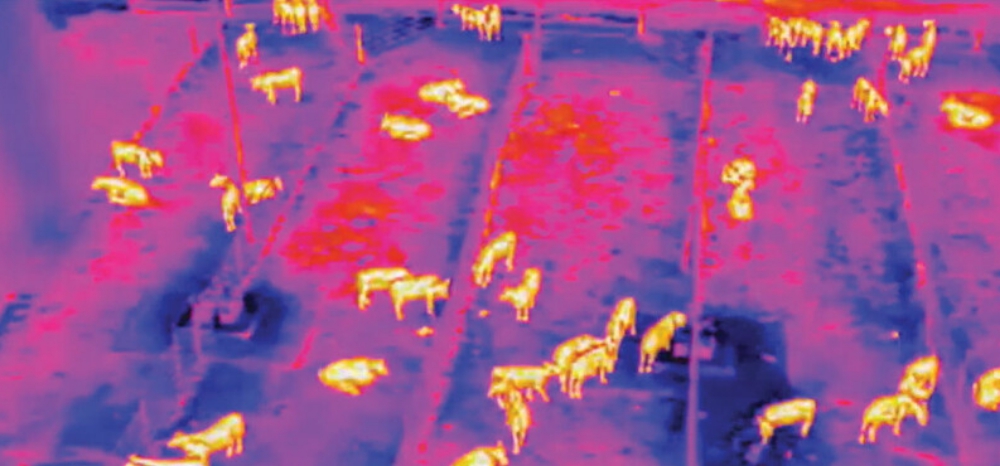Scientists at Texas A&M AgriLife Research and Extension Center in Amarillo, are testing different technologies that could make caring for animals easier.
“We’re trying to accelerate how we detect and respond to disease status or some other health status of the animals,” Brent Auvermann, director of the center, told the Texas Farm Bureau Radio Network. “Cowboys in a feedlot, for example, already look at every animal every day from horseback. But is it possible for us to use some kind of remote sensing, whether it’s on a drone or fixed up high?”
Researchers are trying to determine if it’s possible to use imaging techniques, digital video and other systems to identify livestock with signs of illness or poor feed-to-gain performance.
“Really, the objective here is to identify animals earlier than we otherwise could,” Auvermann said. “Perhaps, for example, we can do it at night when we don’t have a lot of human beings in the feedlot. Maybe there’s evidence that shows up at night that we could detect using either drones or some other remote sensing technique.”
One technique being tested involves thermography via drone. This method searches for subtle temperature differences to identify sick animals.
Thermography looks at surface temperatures and can be used from a distance on several animals at once with the help of artificial intelligence (AI).
“In a feedlot you can mount digital video cameras up high and just continually monitor their behavior,” Auvermann said. “One thing we’re investigating is what behavioral cues can be extracted from a digital video loop to figure out if an animal is not eating consistently.”
The cameras capture a lot of data and AI is used to sort the images.
Although the research is in the very early stages, it could one day be used on a private ranch to monitor cattle health and behaviour.
“I think all of agriculture is moving this way. The main idea here is not the drone, per se, it’s the remote sensing and the data analytics that go along with it.”
Photo: Texas A&M AgriLife Research
Source: Drovers

